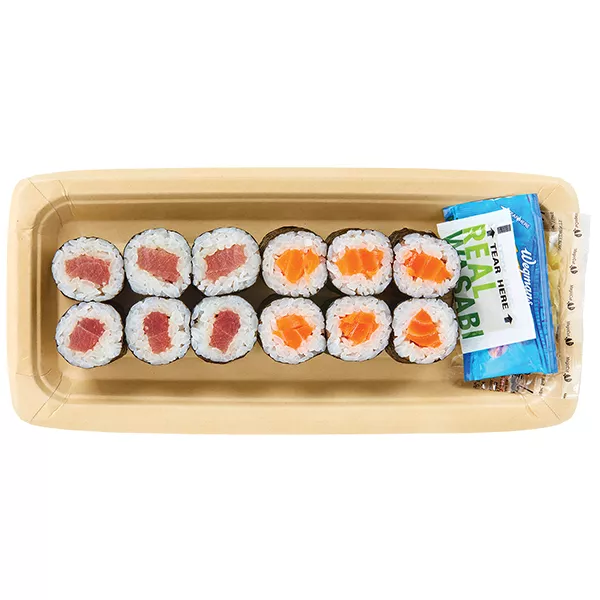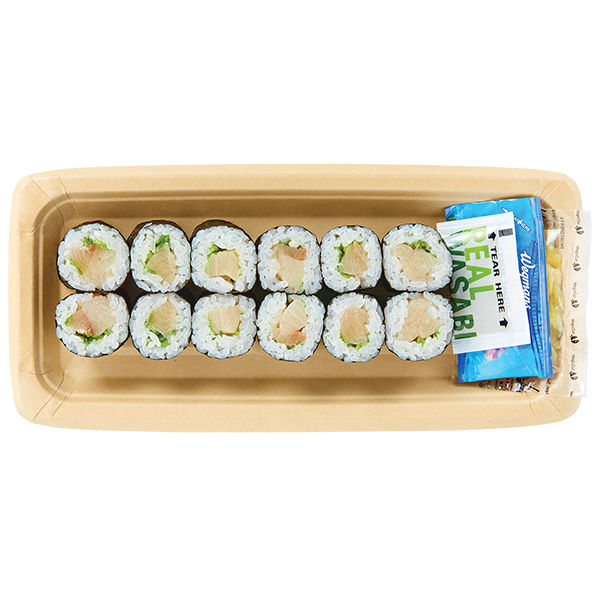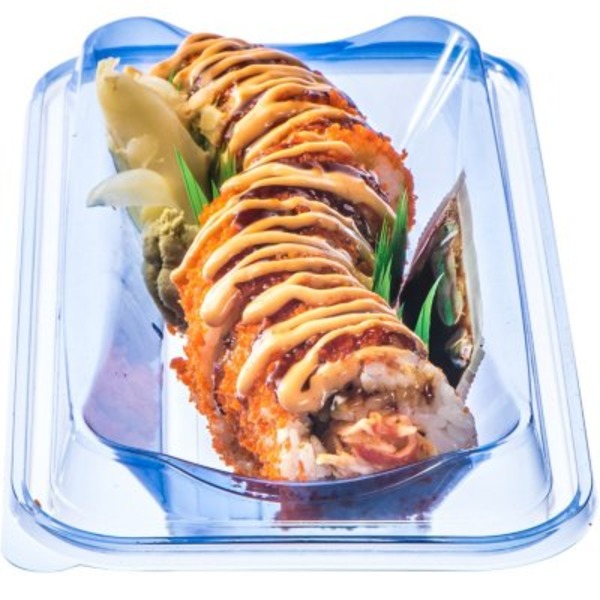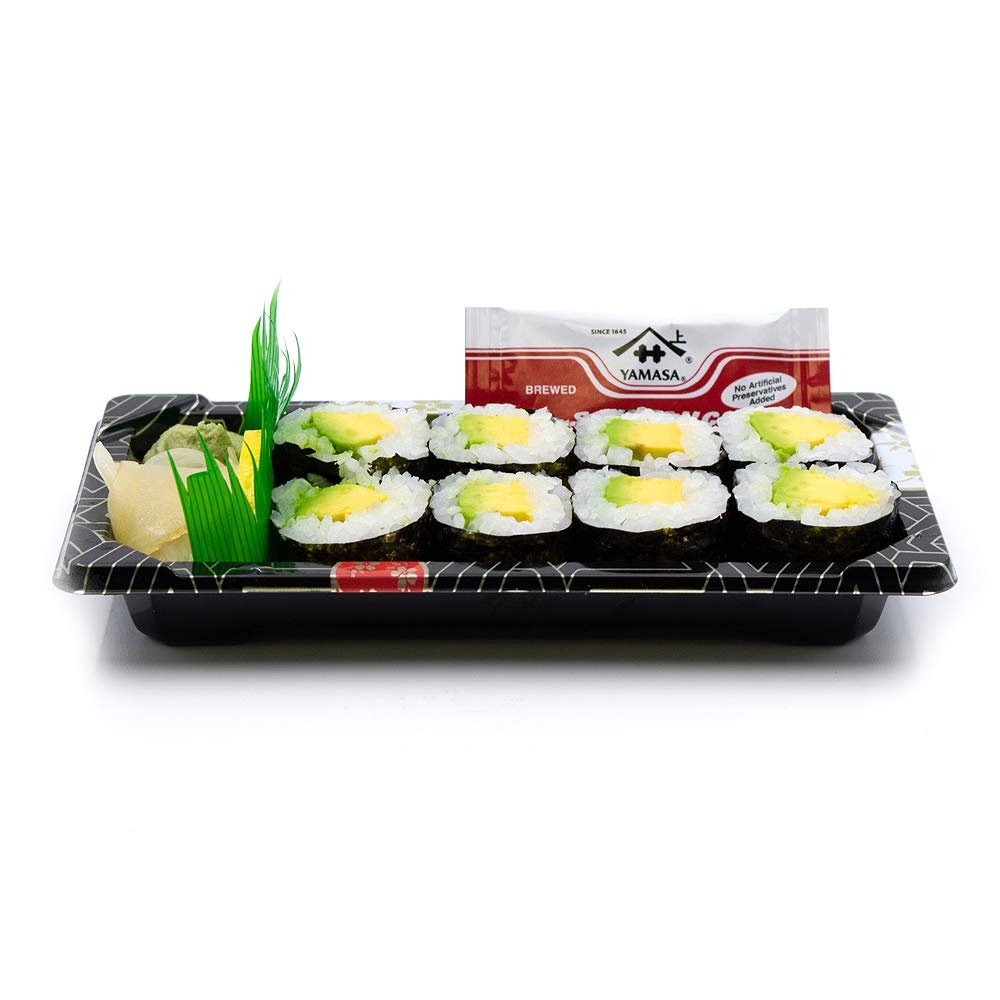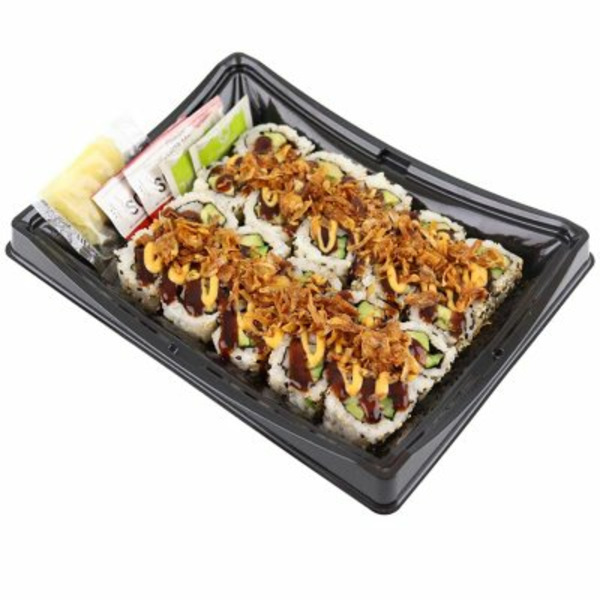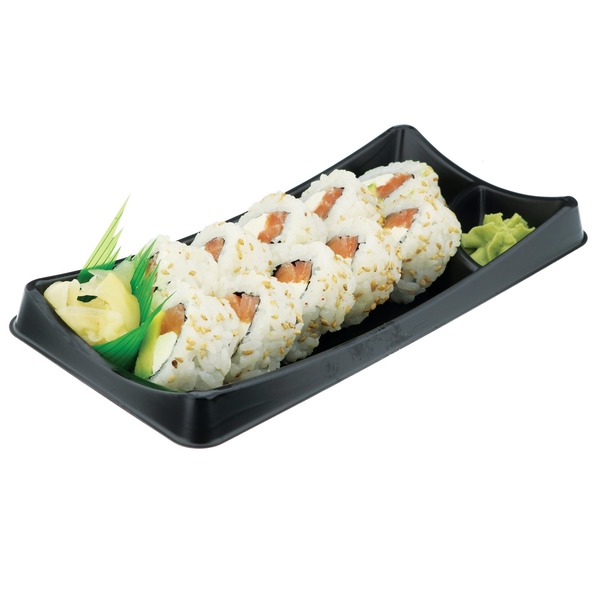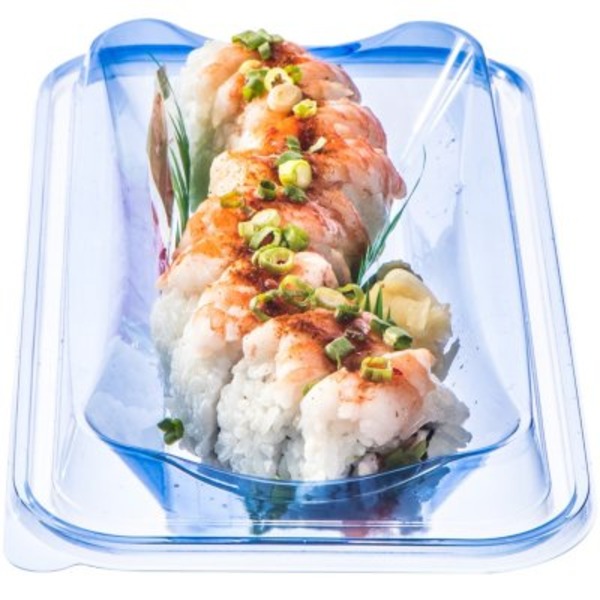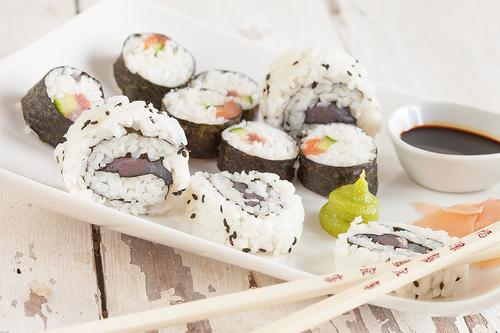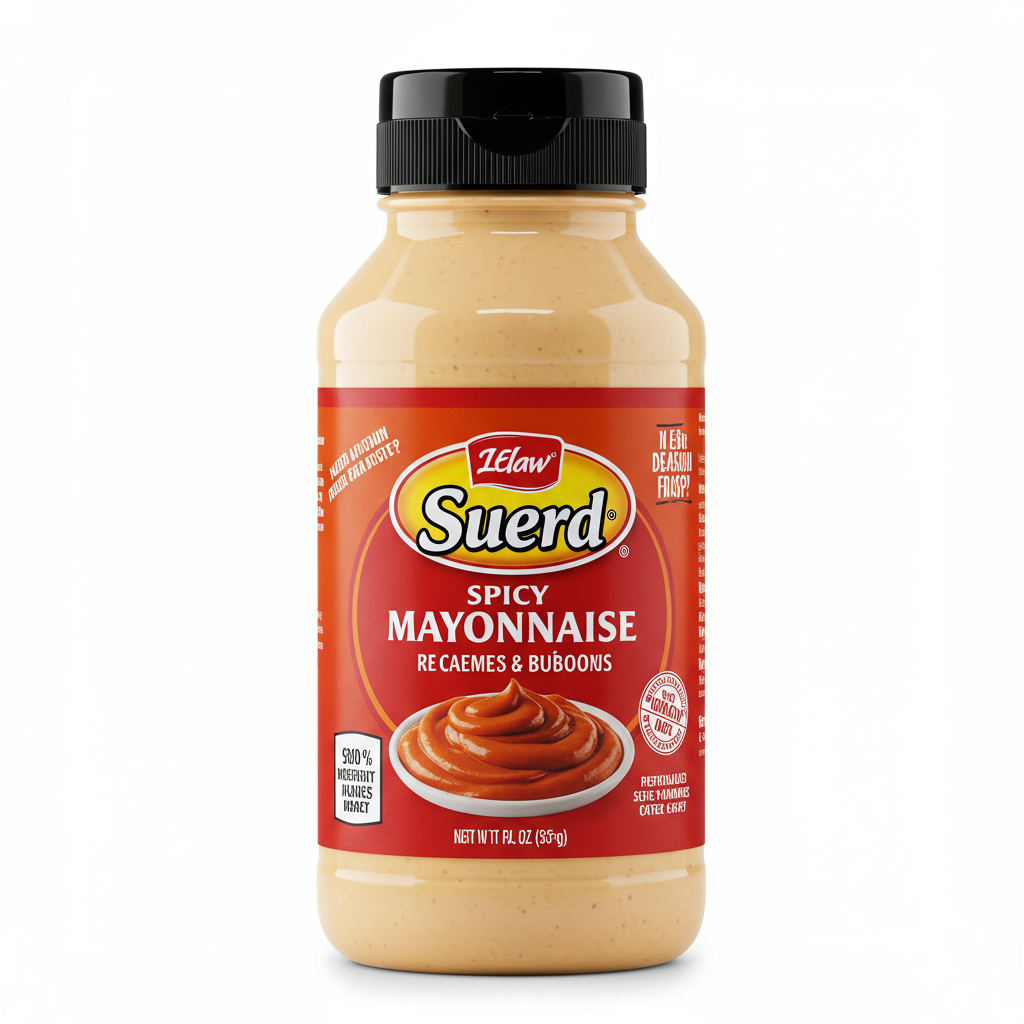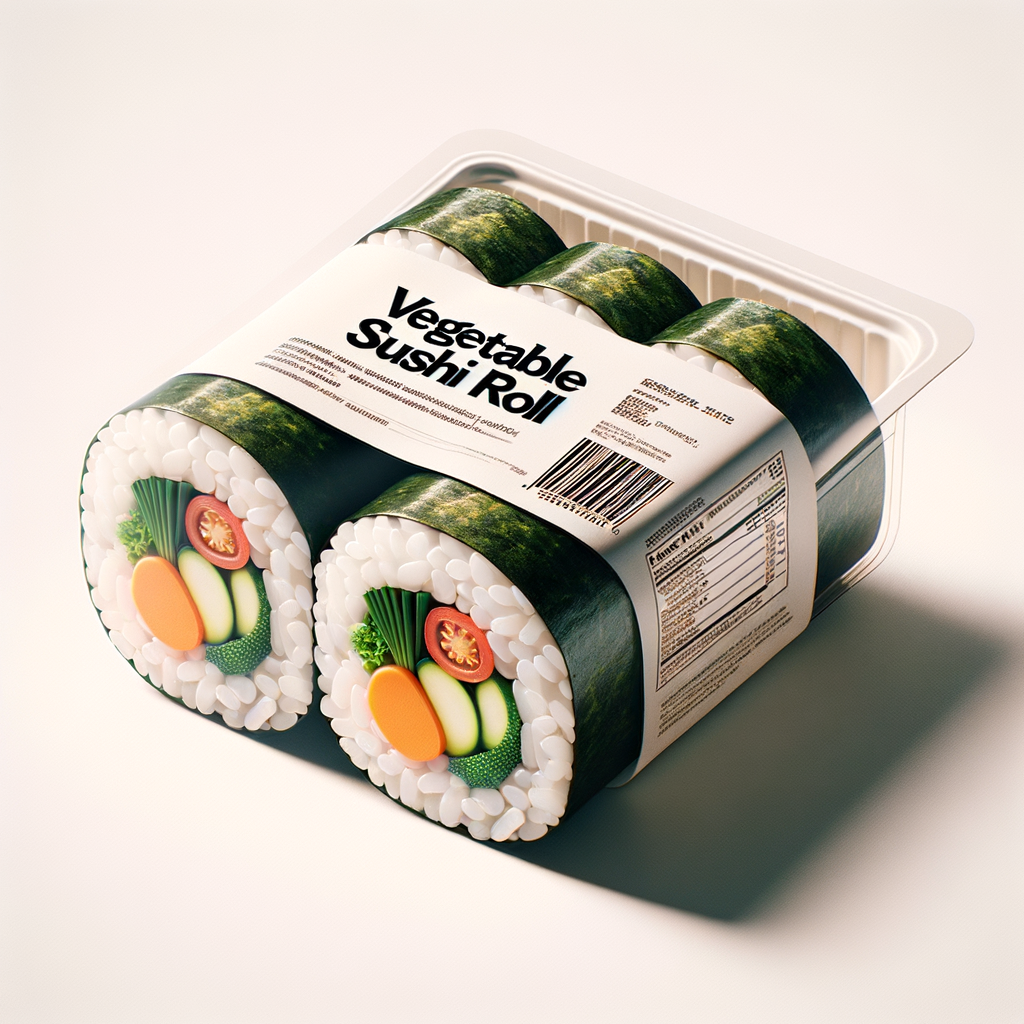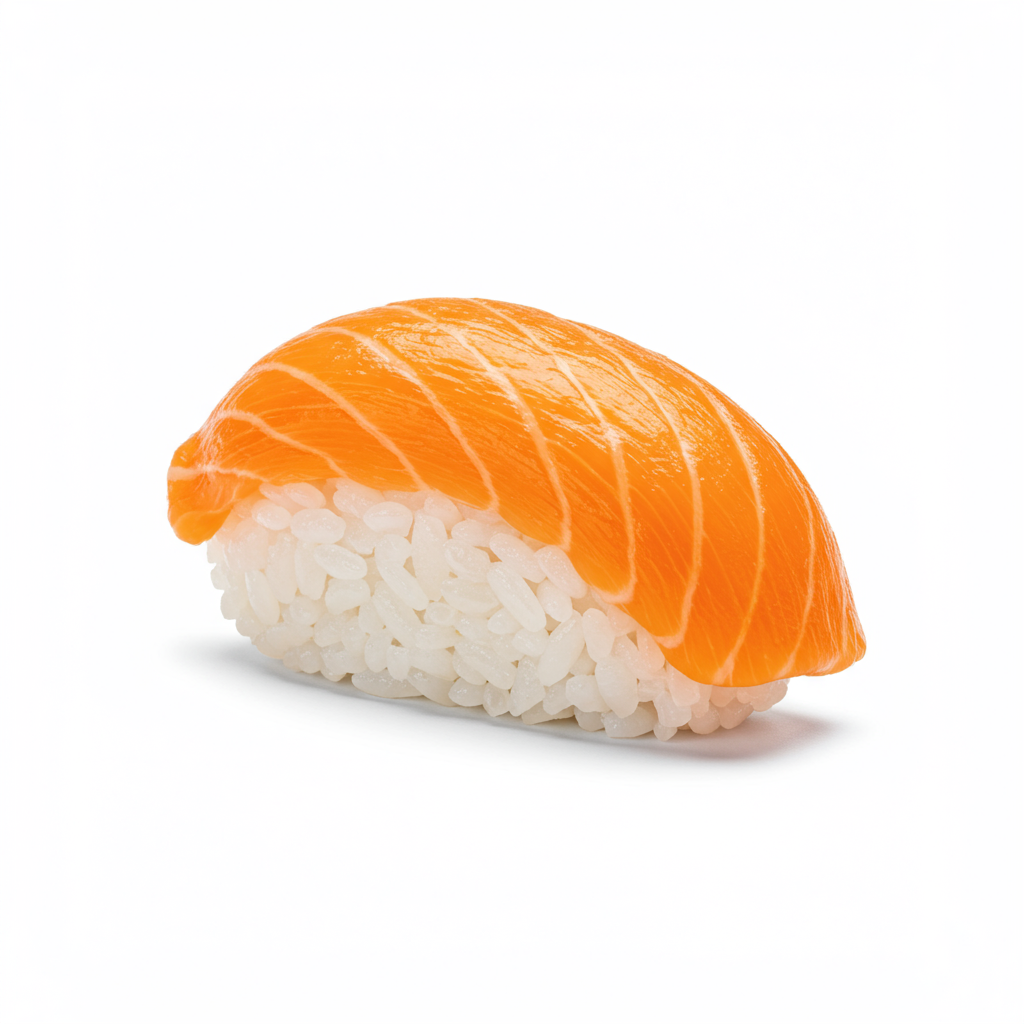Sushi
Sushi is a traditional Japanese dish typically consisting of vinegared rice paired with various ingredients such as raw or cooked seafood, vegetables, and occasionally tropical fruits. It is known for its delicate and artful presentation, making dining on sushi a visually aesthetic experience.
Enjoy sushi in a variety of forms, including nigiri (a mound of rice topped with a slice of raw fish), maki (rice and fillings rolled in seaweed), and temaki (cones of seaweed filled with rice and ingredients). Whether you're a sushi novice or an experienced connoisseur, there's a variety to suit your taste.
66%
CARBS
13%
FAT
21%
PROTEIN
Featured Articles
1,048 Sushi Products
Wegmans Ocean Fish Roll with White Rice (Raw Sushi)
Wegmans Eel Cucumber Roll with White Rice (Cooked)
FujiSan Dynamite Roll
Wegmans Yellowtail and Scallion Roll with White Rice (Raw)
FujiSan Walton Roll
Kikka Sushi Roll Avocado Small, 3 Ounce
Mai California Crunch Roll
H-E-B Sushiya Philadelphia Roll
FujiSan Avocado, Cucumber, And Surimi Topped With Shrimp
Wegmans Crunchy Scallop Volcano Roll with White Rice (Cooked)
22 Recipes for Sushi
Sushi Is Frequently Used With
Sushi FAQ
Can I use cooked fish instead of raw fish in my sushi?
What are the basic ingredients needed for making sushi?
What is the best type of rice to use for sushi?
Do I need a sushi mat to make sushi rolls?
How do I prevent my sushi rolls from falling apart?
How long can I keep leftover sushi in the refrigerator?
Can I substitute other types of vinegar for rice vinegar?
What are some common fillings for sushi rolls?
Expiration & Storage Tips
When does Sushi expire?
Precisely due to its ingredient composition, sushi doesn't own a long lifespan. If it is store-bought or delivered, particularly sushi with raw fish, it's best to eat it within the day of purchase. And although sushi experts would say 'never wait until second day', if it's refrigerated properly immediately after purchasing, it might still be okay to eat the next day. As for homemade sushi, you sure get to control the freshness of each ingredient but the rule remains: it's best to eat on the same day it's made. Freezing sushi is generally not advised due to its potential impact on taste and texture.
How do you tell if Sushi is bad?
If sushi looks or smells odd, it should not be eaten. More specifically, if the rice is hardened or the seafood ingredient smells fishy, chances are it's gone bad. A little golden rule you can always go by: When in doubt, throw it out!
Tips for storing Sushi to extend shelf life
• Never leave sushi at room temperature for more than two hours. Not only does it risk food safety, the sushi quality will be significantly compromised.
• If you absolutely must store sushi, place it in the refrigerator as soon as possible.
• Bear in mind each ingredient's freshness before and while making homemade sushi.
• Prioritize consuming sushi with raw ingredients as they're the fastest to turn bad.
• Again, freezing sushi is not recommended due to the change in texture and flavor it brings.
EXPIRES WITHIN
5 - 11
DAYS
Equivalents
Substitutes
Health Info
Macros
0g
CARBS
2g
FAT
4g
PROTEIN
Allowed on these diets
LOW FAT
HIGH CALCIUM
MEDITERRANEAN
LACTOSE FREE
GLUTEN FREE
Contains these allergens
FISH


